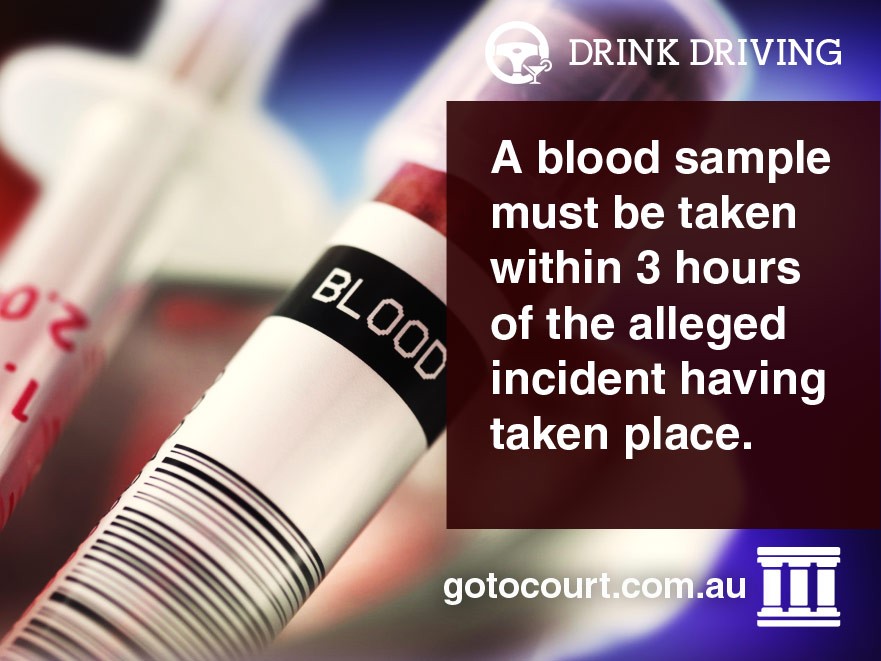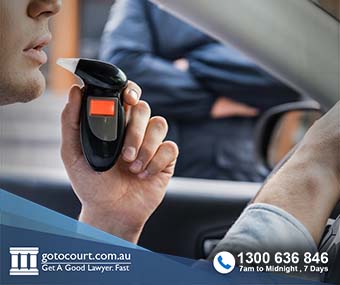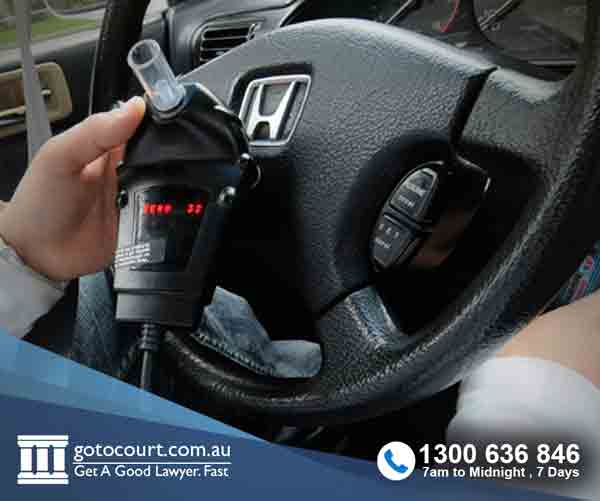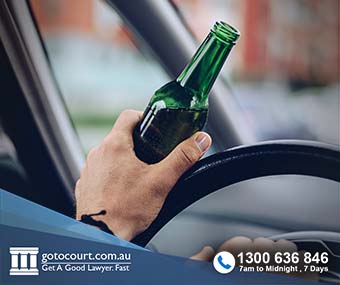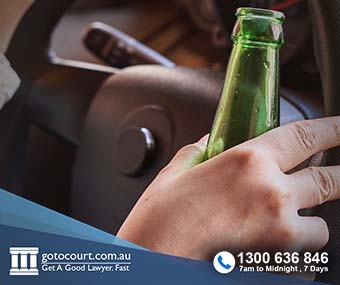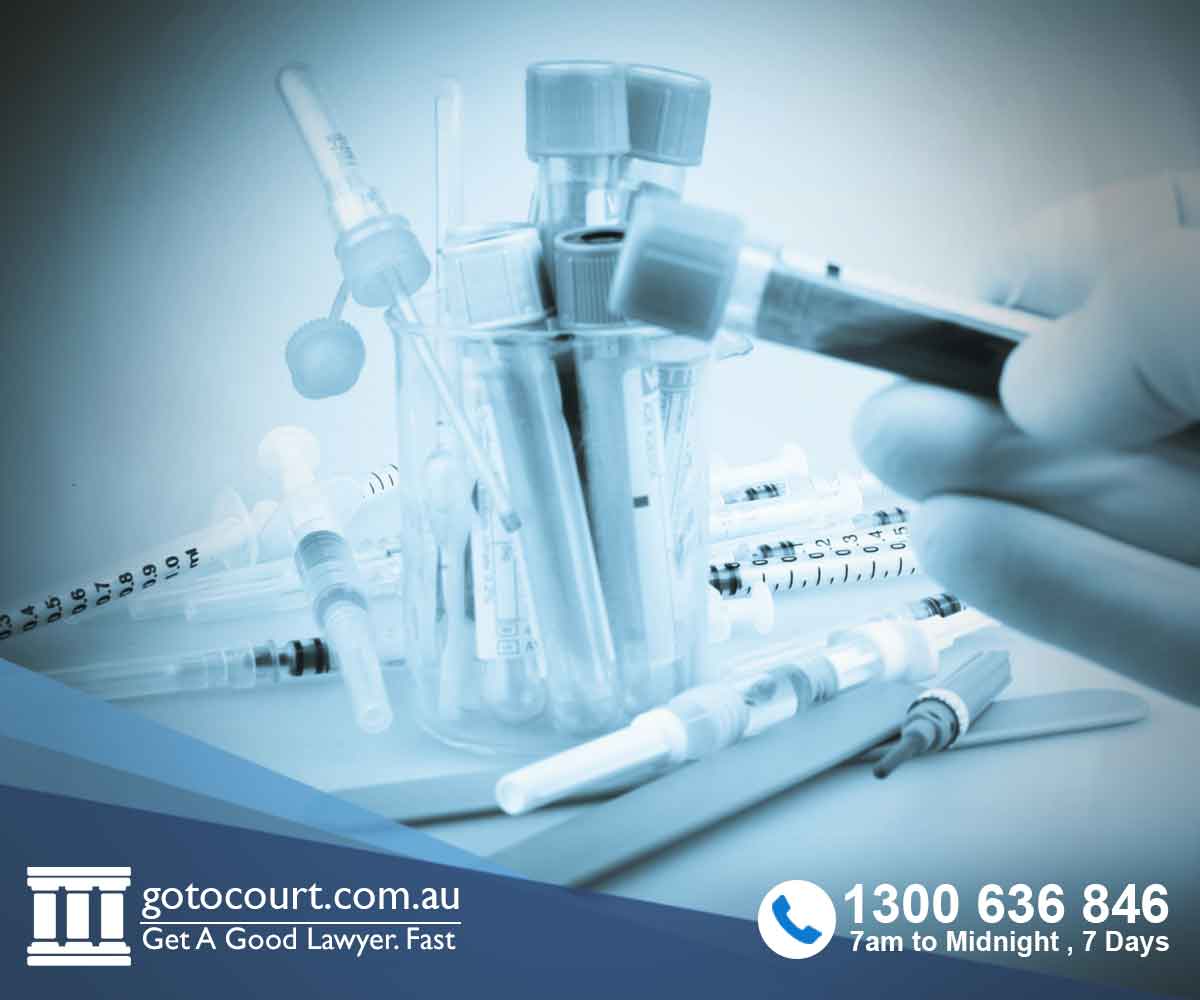Refusing a Blood Test in Tasmania
Refusing a Blood Test in Tasmania
The legislation in Tasmania that relates to breath, saliva and blood testing is found in the Road Safety (Alcohol & Drugs) Act 1970. This law sets out the rights that police have when exercising their power to conduct random breath or saliva testing. It also explains when and how a police officer can request an alleged offender to submit to a further blood test. These blood tests are a conclusive way for police in Tasmania to check for the presence of any drugs and/or alcohol in the alleged offender’s system. Refusing a blood test in Tasmania is a serious offence under the Act and significant penalties apply.
Legislation in Tasmania
A request to provide a blood sample will usually occur when you have already returned a breath/saliva result that indicates a substance and/or alcohol is present in your system, or where the breath/saliva test returned an inconclusive result. Police also have the additional right to request a blood test if they reasonably believe you to be under the influence of an illicit substance.
Upon being requested to provide a blood sample, the Tasmanian Act states that a blood sample must be taken within 3 hours of the alleged incident having taken place. Further, the sample must be taken by a registered medical professional such as a nurse or doctor. After the sample has been drawn, it is required by the Act that the sample be distributed between three containers (for the police, hospital and alleged offender). Further guidelines as to the blood testing process are contained in the Road Safety (Alcohol and Drugs) Regulations 2009.
Refusing a Blood Test in Tasmania
Any act of defiance against a request to provide a blood sample will be treated as a breach of the Act and you may be given a fine, a licence disqualification or even term of imprisonment. If an alleged offender refuses to comply with a direction to provide a blood sample or acts in such a way that gives reasonable suspicion of non compliance, a police officer will have the right to take the offender into custody and detain them as long as necessary to enable the blood sample to be taken.
Penalties
As stated above, any refusal to provide a blood sample upon reasonable request from the police will be treated as a breach of the Act and considered a drink driving offence. For a first time offender, the maximum penalty for a refusal to provide a blood sample may attract a fine of $770-$4,620, a licence disqualification period of 12-36 months or a period of imprisonment of 12 months. The court may impose all three penalties depending on the severity of the offence.
Any second time offender who refuses to provide a blood sample upon reasonable request from a police officer may be liable to pay a fine of $1,540-$9,240, a licence disqualification period of 24-72 months or a term of imprisonment totalling 24 months. Again, the court may impose all three penalties depending on the severity of the offence.
It is important to note however, that the court may lower the fine to be paid or lessen the disqualification period if the offender is able to satisfy the court that there are special circumstances that warrant a lesser penalty.
Defences
The Tasmanian Act does not make any provision for any specific defences, however, the wording of the legislation does allow for the alleged offender to provide evidence of any reasonable excuse for failing to provide a blood sample. The legislation does not however define reasonable excuse and does not provide any guidelines as to what the court may accept as a reasonable excuse.

Affordable Lawyers
Our Go To Court Lawyers will assist you in all areas of law. We specialise in providing legal advice urgently – at the time when you need it most. If you need a lawyer right now, today, we can help you – no matter where you are in Australia.How It Works




1. You speak directly to a lawyer
When you call the Go To Court Legal Hotline, you will be connected directly to a lawyer, every time.

2. Get your legal situation assessed
We determine the best way forward in your legal matter, free of charge. If you want to go ahead and book a face-to-face appointment, we will connect you with a specialist in your local area.

3. We arrange everything as needed
If you want to go ahead and book a fact-to-face appointment, we will connect you with a specialist in your local area no matter where you are and even at very short notice.

